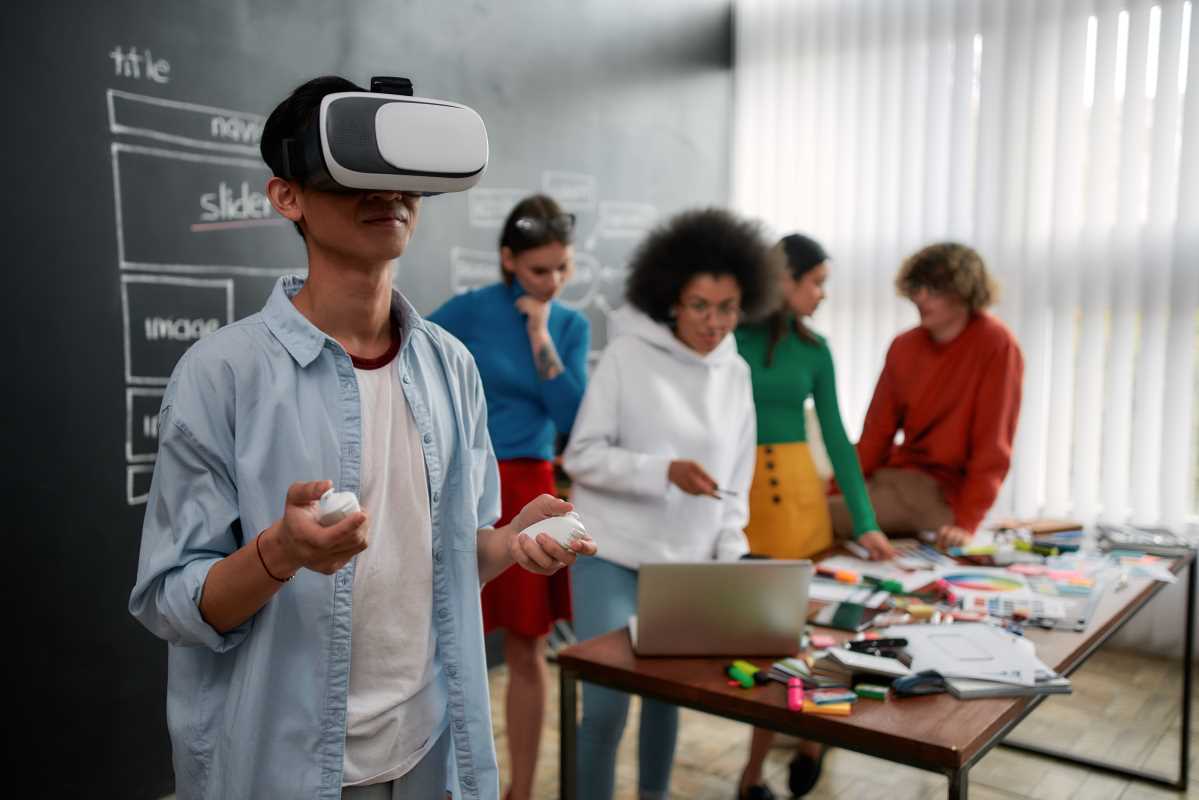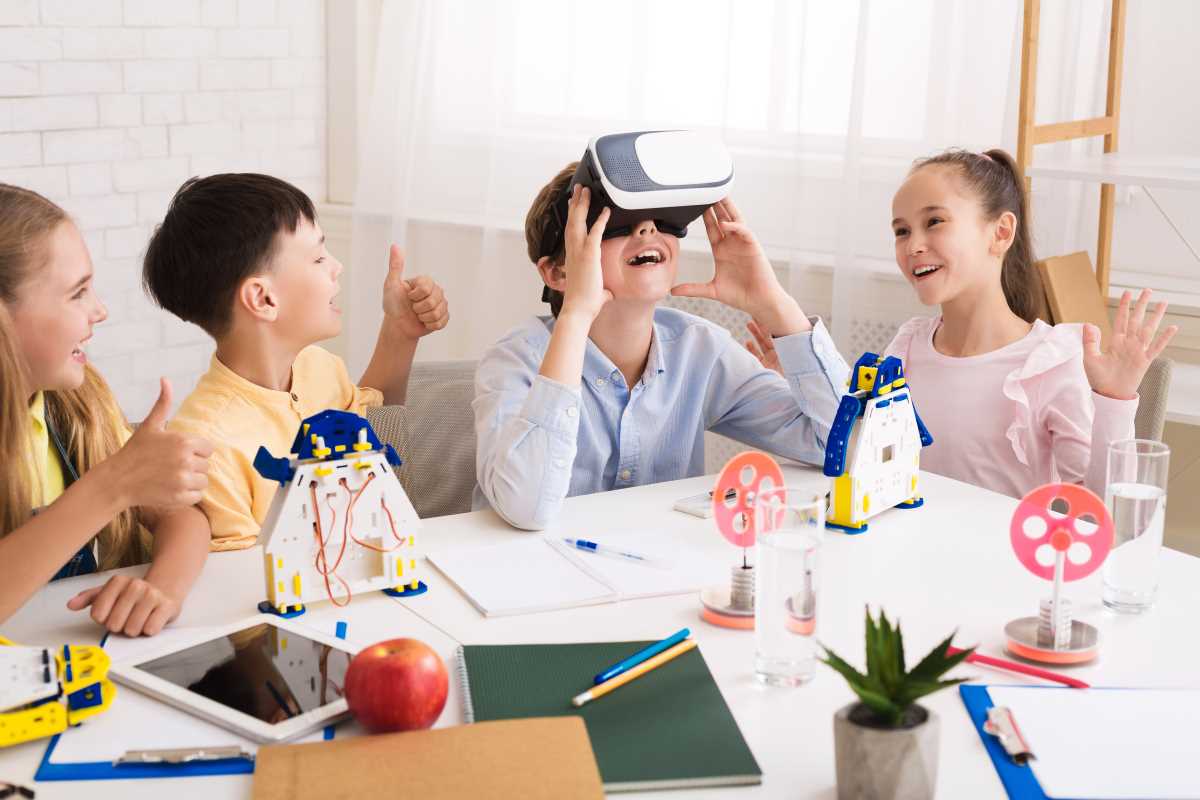Picture a classroom where each student benefits from lessons crafted specifically for them, enhancing both the ease and enjoyment of learning. This vision becomes a reality through the transformative power of artificial intelligence in the educational landscape. AI revolutionizes our learning experiences by adapting them to align with the distinctive needs and strengths of every individual. Imagine having smart tutors at your disposal or stepping into immersive virtual environments, all designed to make education not only more personal but also more effective than we have ever seen before. These incredible technologies are paving the way for a truly customized educational journey.
AI-Powered Tutoring Systems
AI-powered tutoring systems revolutionize the way students receive assistance outside the traditional classroom. These intelligent tutors provide personalized feedback and guidance, helping students understand complex subjects at their own pace.
- Personalized Feedback: Instant feedback on assignments helps students identify and correct mistakes quickly.
- 24/7 Availability: Students can access help anytime, ensuring continuous learning without waiting for scheduled sessions.
- Adaptive Learning Paths: Tutors adjust the difficulty of questions based on the student's progress, ensuring they face challenges without feeling overwhelmed.
Adaptive Learning Platforms
Adaptive learning platforms use AI to modify the educational content in real-time based on a student's performance. This means that the material adjusts to suit the learner's current understanding, making education more efficient and effective.
For instance, if a student excels in mathematics but struggles with reading comprehension, the platform offers more challenging math problems while providing additional resources and support for reading. This dynamic adjustment ensures that every student engages with the content at the right level for their development.
Intelligent Content Creation
Creating educational content that meets the diverse needs of students can be challenging. AI simplifies this by generating customized materials that cater to different learning styles and levels. By analyzing data on student performance and preferences, AI tools create textbooks, quizzes, and interactive lessons that are both engaging and effective.
One of the key aspects of these systems is personalizing learning. This ensures that each student receives content that is most relevant to them, enhancing their understanding and retention of information.
AI in Assessments
- Automated Grading: AI grades multiple-choice and even some essay questions quickly and accurately, freeing up teachers to focus on more meaningful interactions with students.
- Performance Analytics: AI tools analyze assessment data to identify trends and gaps in student understanding, allowing for targeted interventions.
- Adaptive Testing: Tests that adjust their difficulty based on a student's answers provide a more accurate measure of their abilities.
Virtual Reality and AI
The combination of virtual reality (VR) and AI creates immersive learning environments that simulate real-world scenarios. This pairing allows students to explore subjects in a hands-on way, making abstract concepts more tangible.
For example, in a virtual biology lab, students interact with 3D models of cells and organisms, guided by an AI that answers questions and provides deeper insights. This interactive approach not only makes learning more engaging but also enhances comprehension and retention.
AI and Microlearning
Microlearning involves breaking down information into small, manageable chunks, making it easier for students to absorb and retain knowledge. AI supports this approach by delivering bite-sized lessons tailored to the learner's schedule and preferences.
AI-Enhanced Language Learning
Language learning has greatly benefited from AI innovations. Intelligent language apps use speech recognition and natural language processing to help students practice pronunciation and grammar in real-time.
These tools provide instant corrections and personalized exercises, making the learning process more efficient. AI also simulates conversations with native speakers, offering a safe and interactive environment for learners to practice their skills.
Smart Classroom Management
AI streamlines classroom management tasks, allowing teachers to focus more on teaching and less on administrative duties. Intelligent scheduling systems organize timetables, track attendance, and monitor student engagement through behavior analysis.
By automating these tasks, AI creates a more organized and productive learning environment, enabling educators to spend more time interacting with students and less time on paperwork.
Personalized Career Guidance
Choosing the right career path can be daunting for many students. AI-driven career guidance tools analyze a student's strengths, interests, and academic performance to suggest suitable career options and educational pathways.
These systems also provide information on required skills, job market trends, and potential earnings, helping students make informed decisions about their futures. Personalized insights ensure that each student receives guidance tailored to their unique profile.
AI-Driven Collaborative Learning
Collaboration is a crucial skill in today's world, and AI enhances the way students work together. Intelligent platforms form balanced groups based on complementary skills and monitor group dynamics to promote effective teamwork.
These systems also facilitate communication by suggesting discussion topics and providing resources that align with the group's objectives, making collaborative projects more efficient and successful.
AI transforms education by making learning more personalized, engaging, and effective. As these technologies continue to evolve, they hold the promise of creating an educational experience tailored to each student's unique needs, paving the way for a brighter and more inclusive future in learning.







